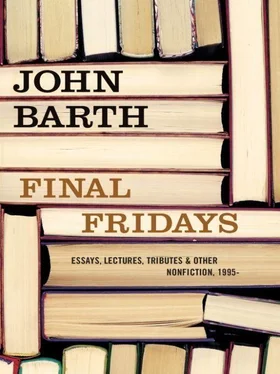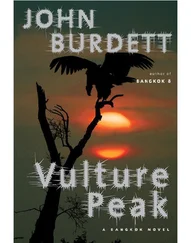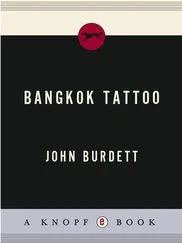My then-closest graduate-school-fellow-apprentice-writer-friend and I, as we were about to be duly diploma’d by our university as Masters of Arts, considered together one spring afternoon — no doubt over a couple of celebratory beers — what we might do to pay the rent until the golden shower of literary fame and fortune descended upon us like Zeus’s stuff on Danae. Having had some school-vacation experience of such alternatives as factory-, sales-, and office work as well as manual labor, we agreed by passionate default that college teaching looked to be the least abusive of our available options and potentially the richest in free time for writing. It had not escaped our notice that doctors, lawyers, administrators, and businessfolk, for example, tend to get busier as their careers advance, whereas the workloads of university professors in the humanities appeared to us to get progressively lighter and more flexible as they ascend the academic ranks. Never mind whether this perception was correct; my buddy and I were persuaded enough thereby to decide to become writer/teachers: Writers in the University. Inasmuch as we ourselves had been blessed with splendid professors of a great many disciplines and were the opposite of cynical about the teaching half of our prospective double careers, our next consideration was how we might spend our classroom time most fruitfully for our students-to-be and ourselves. My friend — who had a stronger intellectual string to his bow than I and a more solid background in literature, history, and philosophy — decided that he would devote his academic life to the answering of rhetorical questions. Should some smart-ass future student of his happen to ask blithely, for example, “Who’s to say, finally, Professor, what’s Real and what isn’t?” Ben vowed that he would tap himself on the chest, say “Check with me,” and lead that student rigorously through the history of metaphysics, from the pre-Socratics up to the current semester.
And I? Well, the Answering of All Rhetorical Questions is no easy act to follow — Wouldn’t you agree? — but it occurred to me to vow in my turn that I would spend my academic life saying over and over again All the Things That Go Without Saying; that (if I may paraphrase myself) I would stare first principles and basic distinctions out of countenance; face them down, for my students’ benefit and my own, until they confessed new information. What is literature? What is fiction? What is a story ?
And so for the next many years I did, and indeed continue still to do, although the dialogue is more often with myself these emeritus days than with students. And I hope to return to at least the last of those examples (What is a story?) later in this talk. So that’s two things now to be perhaps returned to, the first being. . I forget what, but trust that it will return to me . Meanwhile, having answered or at least responded to my opening question—“Why bother to attempt serious replies to banal questions? ”—I now proceed to a few of those questions themselves.
MY GIFTED GRADUATE-SCHOOL pal, alas, died young, leaving many rhetorical questions still unanswered. In faithful pursuit of our jointly-declared program, however, I’ve been writing fiction as well as professing it ever since, and publishing it for 40-plus years or 5,000-plus pages, whichever is longer 4, and giving public readings from it, most often on college campuses, through at least 35 of those 40. More often than not, these reading-gigs include responding to questions from the audience afterward — something that for better or worse a writer doesn’t normally get to do with his or her readers.
As you might imagine, over the semesters at least a few of those questions come to be fairly expectable and not inherently exciting— Do you write your books with a pen or a pencil or what? Have any of your novels been made into movies? What effect, if any, has your university teaching had on your writing? Whether or not such routine questions — and my earnest responses themto — are interesting, it has interested me to see both the questions and the replies evolve somewhat over the decades. Taking them in order (I mean in order to get them out of our way):
1. The old question Do you write with a pen or a pencil or a typewriter or what? changed about a dozen years ago to typewriter or PC? (those were the innocent days when PC still meant “personal computer” instead of Political Correctness), and nowadays it seems to have become desktop or laptop? — as if that exhausts the imaginable options any more than does the classic “Your place or mine?” I have never understood the great pen-or-pencil question’s point, so to speak, in either its low-tech or its higher-tech versions, but I’m impressed by its frequency. Is the asker an aspiring writer, I wonder, who imagines that a change of instruments might induce the muse to sing? Can she or he be thinking, “Since that guy uses Microsoft Word 5.0 on a Macintosh LCIII and his stuff gets published and even remains by and large in print, perhaps if I [et cetera]. .” It’s a magic syllogism. Even if the question’s motive is less complimentary, its logic is no less fallacious: “Ah, so: He writes with a MontBlanc Meisterstück fountain pen. That explains the Germanic interminability of certain of his novels,” et cetera.
No, no, no, dear interrogator: You must seek elsewhere the explanation of their Germanic und so weiter . What earthly difference can it make to the muses whether one composes one’s sentences with a Cray mainframe supercomputer or with the big toe of one’s left foot (like the cerebrally palsied Irish writer Shane Connaught) or with one’s nose or with some other appendage of one’s anatomy or for that matter of someone else’s anatomy? It goes without saying — Does it not? — that those sentences are what they are, for better or worse, whatever the instrument of their setting down.
I do remember, however, once hearing the critic Hugh Kenner speak in an interesting way of how literature changed after the 19th century when it came to be composed on typewriters instead of penned, its alphabetical atoms no longer cursively linked within their verbal molecules (these metaphors are mine, not Professor Kenner’s) but ineluctably and forever side-by-siding like wary subway passengers, and leached of individual calligraphy as well. When I objected that a few antediluvians, such as my Baltimore neighbor Anne Tyler and myself, still prefer the “muscular cursive” (Tyler’s felicitous term) of longhand penmanship for first-drafting our prose, Kenner replied, “All the same, you grew up breathing the air of literature composed on the typewriter.” Well, he had me there, sort of — except that the air that most oxygenated my particular apprenticeship was a fairly equal mix of high Modernism (presumably typewritten) and of quill-scrawled antiquity, with a healthy component of the oral tale-telling tradition as well. It is a mixture that I heartily recommend to apprentice writers: one foot in the high-tech topical here and now, one foot in narrative antiquity, and a third foot, if you can spare it, in the heroic middle distance.
My favorite response to the classic pen/pencil/PowerBook question, you’ll be excited to hear, comes in fact from those older storytelling traditions. The enormous Sanskrit tale-cycle Katha Sarit Sagara , or The Ocean of the Streams of Story , was set down in the 10th or 11th century — with a quill pen, presumably — by the Kashmirian court poet Somadeva. Its ten large folio volumes pretend to be a radical abridgment of the surviving one-seventh of what has to have been in its original version the longest story ever told or written: the Brihat Katha , or Great Tale, first told by the god Shiva to his consort Parvati as a thank-you gift for a particularly divine session of lovemaking. By my calculations (based on what’s conjectured about the Homeric oral tradition), it must have taken Shiva two and a half years to spin the thing out, while Parvati sat listening patiently on his lap — the primordial laptop, I suppose. No problem in their case, since the tale, the teller, and the told were all immortal. But when Shiva’s Great Tale was first written down by the scribe Gunadhya (so our later writer Somadeva declares), its passage from the oral to the written medium required seven full years — which is just as well, inasmuch as the medium of transcription was the scribe’s own blood. 5
Читать дальше












